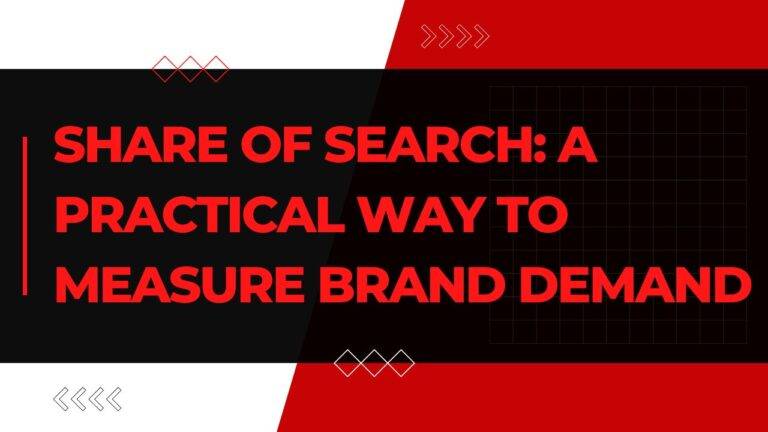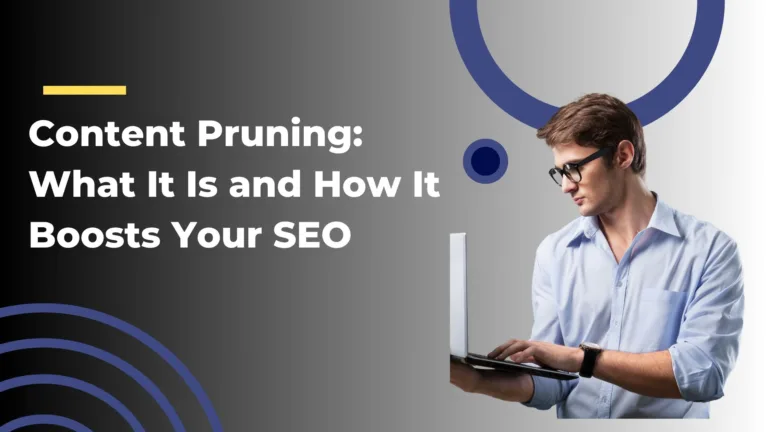SEO plays a vital role in shaping and influencing your brand image in search engine results. This guide highlights key strategies for leveraging SEO to strengthen online reputation.
Every aspect of marketing contributes to effective brand management. Maintaining a consistent tone across advertisements, emails, and using the same visual assets on your website and billboards helps create a unified brand perception for customers evaluating your offerings.
However, negative reviews or unfavorable media coverage can sometimes impact how your brand is perceived. When potential customers want to assess your credibility, their first step is often an online search. Simply visiting your website won’t suffice—they’ll look for unbiased opinions as well.
That’s why online reputation management becomes essential. It involves directing and refining the conversation surrounding your brand across digital platforms. Incorporating SEO into this process is a crucial step in protecting and enhancing your reputation.
What Is Reputation Management in SEO?
Reputation management in SEO focuses on making sure that whenever someone encounters your brand in the search engine results pages (SERPs), they leave with a positive impression.
This often involves ensuring your brand has visibility and influence on the first page of search results, as well as within Discover feeds and News listings.
Why Is Reputation Management Important for SEO?
Online reputation management (ORM) is essential to SEO because even strong rankings won’t help if the overall perception of a brand is negative—users are far less likely to click.
SEO professionals must monitor how the brand is being represented across the internet. If negative sentiment exists, even a well-crafted call to action in a page title may not be enough to attract clicks.
It’s also important to note that organic traffic without conversions holds little value. A brand’s online reputation directly impacts its ability to convert visitors into customers.
Most research into a business, product, or service begins with a search. While your website might appear in one or two positions, the rest of the results may present messages about your brand that are not as positive as you’d prefer.
For Corporate Brands
Negative feedback is inevitable.
Competitors may be favored in third-party comparisons, and critical news coverage can easily rank high in search results.
If you’re not actively tracking what appears for your branded keywords, you risk missing early signs of potential reputation problems. Once negative stories spread or incorrect details are published on external sites, repairing brand image becomes far more difficult.
That’s why it’s vital to ensure your brand’s message dominates the first page of SERPs. By proactively managing your online reputation, you can address misinformation and push down unfavorable content before it impacts your credibility.
Don’t Overlook Your Personal Brand
The same principles apply to individuals. Your personal brand also needs to reflect positivity in online searches.
Most people already curate their image on social media—sharing highlights, editing photos, and presenting themselves in the best possible light. In the same way, ensuring search results convey an accurate and favorable impression is equally important.
Employers and recruiters now regularly check social media profiles when evaluating candidates. But what about the search results that appear when your name is typed into Google? What shows up on that first page matters.
How Does SEO Contribute to Online Reputation Management?
SEO and online reputation management (ORM) are closely connected. For many people, a search engine result is their first interaction with a brand.
To make ORM effective, a brand must influence what appears when someone searches for it. This is where SEO plays a key role—by using strategies to maximize control over the content displayed in SERPs and making the most of that search visibility.
Fact-Checking and Pushing Back Against Rumors
ORM focuses on building and maintaining a positive brand image online. Since conversations about a brand can happen anywhere—often across social media—SEO ensures that when people investigate further through search engines, they find reliable and favorable information instead of harmful speculation.
Recovering From a Negative Review
It happens to almost every business: a flawless Google Business Profile filled with 5-star ratings suddenly takes a hit with an unfair 1-star review.
Regardless of how unreasonable the review seems, it must be addressed.
Removing Negative Reviews
In some cases, the role of SEO is to work on having the review taken down—especially if it violates platform policies. On Google, this could mean a competitor or a former employee left the review. On platforms like TrustPilot, it may be because the reviewer cannot be verified, raising doubts about whether the experience was genuine.
Responding to Reviews
At other times, the right step is to respond directly. This may involve clarifying a misunderstanding or, when appropriate, acknowledging the issue and explaining how improvements will be made. Such responses demonstrate that the business values feedback and takes action to improve.
Owning Your Brand Search Results
Ranking for your brand name is essential, though it can be challenging if your name is common or has other meanings. Ideally, your website should appear in the top organic position, with other assets you control—such as social profiles, directory listings, or official pages—filling the next few spots. This helps ensure that searchers see accurate, positive information first.
6 Search Engine Reputation Management Tips
1. Take Control of the Front Page
As much as possible, the first several results for your brand should be properties you own or influence—your website, official social media accounts, and other digital assets.
When potential customers search for your brand, you want them to find accurate and positive information. To do this, make use of high-authority platforms like Facebook, LinkedIn, and Twitter, which often rank well for branded searches.
Don’t stop at social media—secure profiles on trusted review platforms and industry directories, where you can still guide the conversation about your brand.
2. Stay Active on Social Media & Review Platforms
Having a presence on social media and review sites brings both opportunities and risks. People will share opinions and post reviews, and not all of them will be flattering.
Even without an official company Twitter or Glassdoor profile, conversations about your business can still take place—and you may not have insight into them.
That’s why monitoring and engaging is essential. Respond to both praise and criticism. A single negative tweet, for example, could easily show up in Google search results for your brand.
Maintaining an active, responsive presence helps you manage feedback and ensures that negative content doesn’t dominate the first page of search results.
3. Set Up a Google Business Profile
Your Google Business Profile (GBP) is one of the most powerful branded search results you can control. In many cases, it’s the very first thing users see when they search for your business.
During holidays or unexpected events like COVID-19 restrictions, opening hours and availability may change. Keeping your Google Business Profile updated ensures accurate information is displayed—rather than outdated details pulled from other websites.
Google Posts
Another advantage of GBP is the ability to use Google Posts. These short updates appear directly in your profile, giving your brand a space to share offers, articles, or announcements instantly. It’s an excellent tool for timely promotions or reactive PR, bypassing the wait for traditional indexing.
Reviews
With GBP comes the possibility of reviews being prominently displayed in search results. While unfair reviews are difficult to remove unless they break Google’s guidelines, they can still be addressed. Responding constructively to negative reviews shows accountability and helps transform criticism into an opportunity to demonstrate great customer service.
Questions & Answers
The Q&A section of GBP allows the public to ask questions about your business—but it also allows anyone to answer. This makes it essential to monitor regularly. Accurate, timely responses protect your brand from misinformation and show that you’re attentive to customer needs.
Staying proactive in managing your Google Business Profile ensures your brand remains in control of this highly visible section of the SERPs.
4. Create Content Around Potentially Negative Keywords
When people search for your brand, Google often generates “People Also Ask” (PAA) suggestions. These prompts can introduce new questions—sometimes negative—that searchers hadn’t previously considered.
By creating content that addresses these questions directly, you can guide the narrative, provide accurate information, and prevent speculation from shaping brand perception.
5. Be Newsworthy for Positive Reasons
If a negative news article ranks highly and is based on fact, attempts to suppress it will win little sympathy. Instead, focus on generating coverage for the right reasons.
Highlight charitable contributions, community support, or sustainability initiatives. Engage in digital PR not only for links but also for brand mentions. Even a simple mention on a respected, high-authority site can help push down review pages or comparison sites that might harm your reputation.
The goal is to fill the front page of search results with positive stories that extend beyond the assets you directly control.
Set Up Brand Alerts
Tools like Google Alerts make it easier to track when your brand is mentioned online. This allows you to quickly respond—whether it’s correcting a misreported fact, clarifying inaccurate details like opening hours, or even offering your perspective on a developing story. Acting early can limit the spread of harmful or misleading information.
6. Don’t Focus Only on Google
While Google dominates search, it’s not the only platform people use. Make sure to manage your brand’s reputation across other search engines as well. Create a Bing Places listing and regularly review how your brand appears on DuckDuckGo or other platforms where potential customers may be searching.
Maintaining control across multiple search engines ensures consistent and positive visibility wherever your brand is discovered.
Conclusion
Online reputation management should be an integral part of your SEO strategy. Both elements directly affect how your brand is perceived, and when combined, they strengthen one another. Ignoring the connection risks wasting time and resources.
By aligning SEO and ORM, you safeguard your brand image while maximizing the effectiveness of your overall marketing efforts.
FAQs on SEO & Reputation Management
1. What is reputation management in SEO?
Reputation management in SEO involves controlling how a brand is perceived in search engine results. The goal is to ensure that positive, accurate, and trustworthy information appears at the top when someone searches for your brand.
2. Why is reputation management important for SEO?
Even if a website ranks well, a negative brand perception can stop people from clicking or converting. Effective reputation management ensures that users see positive and credible information, which builds trust and increases conversions.
3. How does SEO support online reputation management?
SEO helps influence what appears in search results by optimizing branded content, creating authoritative digital assets, and pushing down negative or misleading information. This allows businesses to shape their narrative online.
4. Can negative reviews be removed from Google or other platforms?
Yes, but only if they violate review guidelines—for example, if they’re left by a competitor, a disgruntled ex-employee, or are not based on a genuine customer experience. Otherwise, responding constructively to reviews is the best approach.
5. What role does social media play in reputation management?
Social media platforms rank highly in search results, so maintaining active branded accounts helps you control more real estate on the SERPs. It also provides a direct way to respond to feedback and engage with customers.
6. How can businesses deal with negative press online?
If unfavorable press ranks highly, businesses should work on generating positive coverage—such as PR campaigns, community involvement, or sustainability initiatives. Over time, these stories can help outrank negative ones.
7. What tools can help with monitoring brand reputation?
Tools like Google Alerts, Mention, and social listening platforms allow businesses to track brand mentions, spot negative content early, and respond before issues escalate.
8. Is Google the only search engine to consider for reputation management?
No. While Google is dominant, other search engines like Bing and DuckDuckGo also matter. Setting up profiles and monitoring search results across platforms ensures consistent brand visibility.
9. How can SEO professionals manage potentially negative keywords?
By creating content that addresses common questions or concerns related to a brand, SEO professionals can provide accurate answers and reduce the influence of speculation or misleading information.
10. Does reputation management also apply to individuals?
Yes. Personal branding is equally important. Employers, recruiters, and clients often search names online, so individuals should ensure their search results reflect a positive and professional image.




